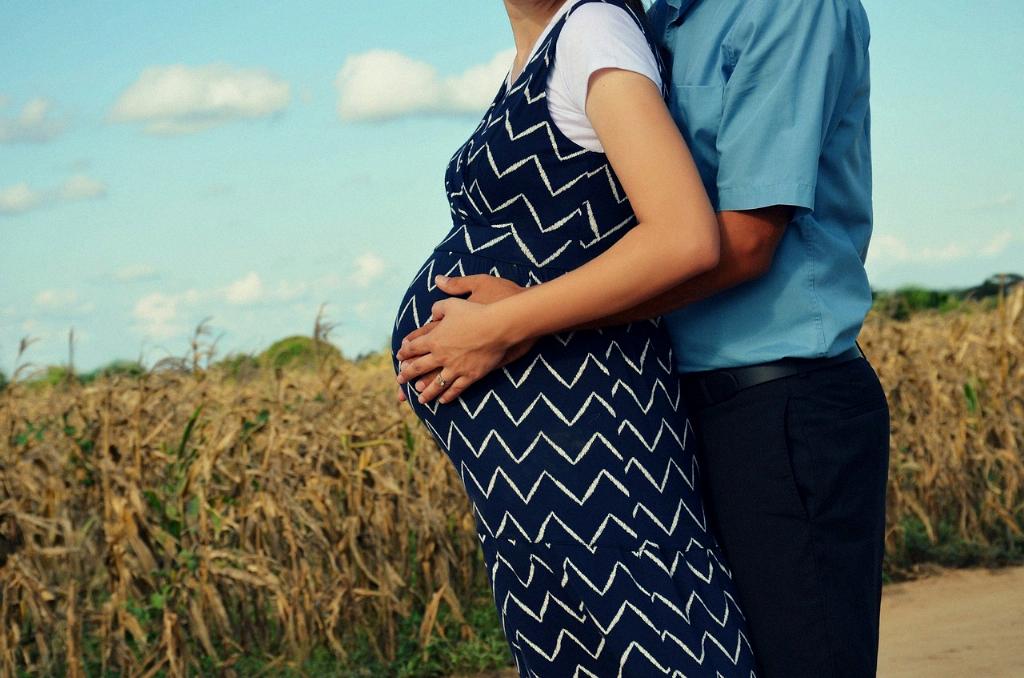When it comes to announcing a pregnancy, each parent-to-be has their own unique timeline and reasons for choosing when to share their exciting news with the world.
Importance of the 20-Week Scan
One of the main reasons why some parents opt to wait until 20 weeks to announce pregnancy is the significance of the 20-week scan. This detailed ultrasound scan checks for any abnormalities in the baby’s development and can provide valuable information about the baby’s health.
Peace of Mind
For many parents, waiting until after the 20-week scan to announce their pregnancy offers them peace of mind. Knowing that the baby has passed this important milestone and is developing well can be a huge relief for expecting parents.
Reducing Anxiety
Announcing a pregnancy can be a joyful but also anxiety-inducing experience for some parents. Waiting until after the 20-week scan allows parents to have more information about the baby’s health before sharing their news, which can help reduce anxiety levels.
Privacy and Personal Choice
Choosing when to announce a pregnancy is a deeply personal decision. Some parents prefer to keep their pregnancy private until they feel comfortable sharing the news with a wider audience. Waiting until 20 weeks allows parents to control the timing of their announcement.
Managing Expectations
By waiting until after the 20-week scan to share their pregnancy news, parents can manage the expectations of friends and family. This can be especially important for parents who have experienced pregnancy loss or complications in the past.
Enjoying Private Moments
Keeping a pregnancy private for the first 20 weeks allows parents to enjoy intimate moments and bond with the baby before the world knows the news. It can create a special time of anticipation and closeness for the parents-to-be.
Ensuring a Healthy Pregnancy
For some parents, waiting until after the 20-week scan to announce their pregnancy is a way to ensure that the pregnancy is progressing healthily before sharing the news with others. This cautious approach can help parents feel more confident in their decision to announce the pregnancy.
Reducing Unwanted Attention
Announcing a pregnancy can sometimes attract unwanted attention or unsolicited advice from well-meaning friends and family. Waiting until after the 20-week scan can give parents more time to prepare for these interactions and set boundaries as needed.
Respecting the Process
Every pregnancy is a journey, and some parents prefer to wait until they reach the halfway mark before making their announcement. This decision can be a way of showing respect for the process of pregnancy and allowing time for the baby to reach important developmental milestones.
Sharing Excitement
While waiting until 20 weeks to announce a pregnancy has its practical reasons, it can also serve as a way to amplify the excitement and anticipation surrounding the announcement. For some parents, building up to the big reveal can make the moment even more special.
Personal Preferences Vary
Ultimately, the decision of when to announce a pregnancy is a deeply personal one that varies from person to person. Whether parents choose to wait until after the 20-week scan or announce earlier, what matters most is that they feel comfortable and supported in their decision.
Final Thoughts
Waiting until 20 weeks to announce a pregnancy can be a deliberate and thoughtful choice for many parents. It allows for a balance between privacy, health considerations, and sharing the excitement of the impending arrival with loved ones. Whatever the timeline, what remains constant is the joy and anticipation that come with welcoming a new life into the world.

